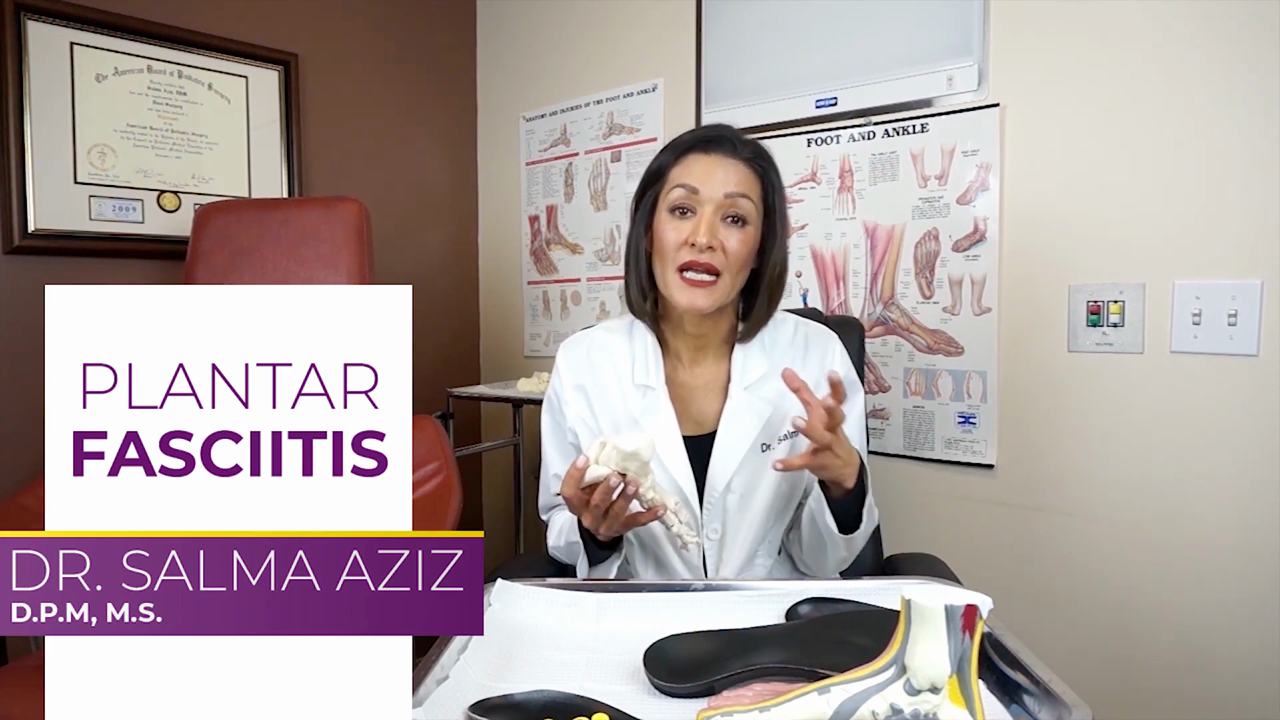If you have noticed that you have a sharp, stabbing pain in your foot when you first awaken, you may have plantar fasciitis. We offer expert plantar fasciitis treatment in Newport Beach and Rancho Santa Margarita.


What Puts Someone at Risk for Plantar Fasciitis?
Several factors can raise your risk for plantar fasciitis. Age (especially 40–60), excess weight, and jobs that involve standing or walking for long periods—like teaching or nursing—can all strain the plantar fascia. High-impact activities such as running or dancing may also contribute to inflammation and pain.
Foot structure matters, too. Flat feet or high arches can affect how you walk and increase stress on the fascia. Poor footwear without arch support can worsen symptoms. If you're noticing ongoing heel pain, it's best to act early. At Foot and Ankle Specialty Group, we offer expert plantar fasciitis treatment in Newport Beach to ease pain and help you move comfortably again.
Diagnosis
Doctors will not normally order any type of imaging to diagnose plantar fasciitis. Diagnosis is typically based on symptoms and the location of your pain. However, your physician may want an x-ray done just to rule out other causes of pain. Untreated plantar fasciitis can lead to bone spurs, which will show up on an x-ray. In general, though, unless used to rule out other causes, you should not need an x-ray for a diagnosis of plantar fasciitis.
Complications
Some incidences of plantar fasciitis may go away on their own without intervention, but if the inflammation doesn’t subside, it can cause more debilitating pain. You will naturally walk differently in an attempt to alleviate the pain, which can lead to knee, back, and hip problems in the future. This is when you would want a specialist to go over plantar fasciitis treatments in Newport Beach.

At-Home Plantar Fasciitis Treatment
Doctors generally recommend a conservative approach to treating plantar fasciitis. This means taking over-the-counter pain and inflammation relievers such as ibuprofen or naproxen.
You can also apply ice to the inflamed area and rest the foot to alleviate the pain. There are also stretches that you can do at home. One common and very effective exercise is to roll a cold can of frozen juice under your foot. The rolling motion stretches and strengthens the plantar fascia, while the coldness of the can alleviates the pain.


Plantar Fasciitis Treatment Foot and Ankle Speciality Group Inc.
If you’ve been noticing stabbing pain in your foot, it’s a good idea to see your podiatrist. Caught early, pain from plantar fasciitis can be significantly improved with the right care. At Foot and Ankle Specialty Group, we provide trusted plantar fasciitis treatment in Newport Beach, tailored to each patient’s unique needs.
Founded in 2001 by Dr. Salma Aziz, the practice is built on time-tested methods and a deep commitment to patient-centered care. Dr. Aziz takes the time to fully understand each case and craft personalized treatment plans, earning her a respected place in both the Rancho Santa Margarita and Newport Beach communities. With the additions of Dr. Petrina Yokay and Dr. Jessica Arneson, and the specialized expertise they bring, our team is proud to offer comprehensive care for a wide range of foot and ankle conditions.
FAQs
How is plantar fasciitis diagnosed?
What are the treatment options for plantar fasciitis?
How long does it take to recover from plantar fasciitis?
Can plantar fasciitis go away on its own?
When should I see a podiatrist?
How is plantar fasciitis diagnosed?
A podiatrist can often diagnose plantar fasciitis based on your symptoms and a physical exam. In some cases, imaging like X-rays or ultrasound may be used to rule out other conditions or assess the extent of the inflammation.
What are the treatment options for plantar fasciitis?
Treatment often begins with conservative methods like rest, ice, stretching exercises, orthotics, and supportive footwear. For more persistent cases, we offer advanced plantar fasciitis treatment in Newport Beach, including custom orthotics, physical therapy, injections, and other minimally invasive options.
How long does it take to recover from plantar fasciitis?
Recovery varies by individual and the severity of the condition. With proper treatment, most patients begin to see improvement within a few weeks, though full recovery may take several months.
Can plantar fasciitis go away on its own?
In some cases, mild plantar fasciitis may improve with rest and self-care. However, if pain persists or worsens, it’s important to seek professional treatment to prevent long-term issues.
When should I see a podiatrist?
If you’ve had heel pain for more than a week, or if it's affecting your ability to walk or perform daily activities, schedule an appointment. Early treatment can prevent the condition from becoming chronic.






